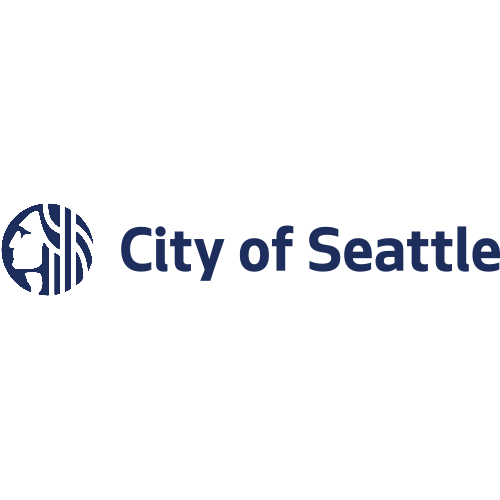Protect Employees From Every Emergency
Disaster can strike anywhere, at any time. From natural disasters to individual emergencies, protecting employees during such events is an employer’s responsibility and first priority. Companies, healthcare facilities, higher education institutions, schools and government agencies must ensure employees are protected during work hours, making emergency preparation crucial.

Preparing Employers and Their Employees During Disaster
Under the General Duty Clause of the Occupational Safety and Health Act of 1970, each employer must provide their employees with a safe place of work, free from hazards that can cause serious physical harm.
Communication during dangerous situations is vital in maintaining safety and avoiding panic, confusion, fear and injuries. Informing employees early and often during emergencies while having the right employee safety plans prepared are just two of the many ways to keep everyone connected and safe.
How Mass Notification Systems Equip Employers With Better Safety Protocol
Emergency responses for employers can be complex. Crisis managers, safety and security personnel, superintendents and other key stakeholders must alert their employees of impending or present hazards in a timely manner. Some corporations use intercoms, public address systems, social media or emails to keep everyone in the know, but these methods are not always practical.
Employees are likely to miss alerts delivered this way. Severe weather, for example, can cause server and network outages, shutting down operations and traditional communication methods. In the event of an active assailant, you may not want to be broadcasting over loud speakers for all to hear. Multiple channels do not always equal a faster response time. These systems do not work harmoniously, either, making it challenging to give appropriate and secure notifications, putting employees at risk and making employers liable.
An efficient mass notification system enables both employees and their employers to have two-way communication before, during and after an emergency. Such systems allow crisis managers and other key stakeholders to send out notifications across multiple modes of communication no matter where employees are located.
Administrators can assign responsibilities based on their roles and send timely and targeted notifications to avoid panic and confusion. Key stakeholders need to inform their employers about what is happening regardless of location, and a mass notification system would ensure that there are no gaps or delays in alerts.
How Mass Communications Keep Everyone Connected
A crisis communication and collaboration system allows key stakeholders the ability to develop action plans, such as evacuation procedures, locations and shelter needs, based on vital community information and execute these plans quickly whenever emergencies occur.
Avoid fear and panic with timely delivery of clear and accurate information available through multimodal communication, including text, email, voice calls, social media, IPAWSs, digital signage and desktop alerts.
An emergency button with confidential communication abilities will connect key personnel to 9-1-1 or first responders and safety and security personnel faster than ever to support both individuals and departments during emergencies of any size.
Access preset message templates based on the emergency type and task specific lists that help first responders and other safety personnel to respond accordingly, quickly and effectively.
Tap into what’s happening in and around your organization, schools, or agency to provide the most accurate cautionary measures for all employees, staff and personnel.
Go digital and keep crisis managers, safety and security personnel and other key stakeholders from wasting time looking for and sorting through paperwork to find protocols, phone numbers and other resources. Save precious time with instant access to floor plans, mapping visuals and important information regarding what is happening beyond the location or facility.
Employees can receive instant communications where they spend the majority of time during work hours surrounding emergency events regardless of their location.
How to Utilize Critical Communication Solutions
Choosing the right communication solution is not an all-or-nothing choice. Rave Mobile Safety’s mass communication software is designed to integrate into preexisting emergency response plans for greater ease and increased safety measures for businesses, healthcare facilities, schools, higher education institutions and government agencies of any size.
A reliable communications system strengthens collaboration and coordination so employees are safe and emergency personnel may dispatch the necessary resources. An all-in-one critical communication and collaboration platform would ensure that everyone knows exactly what to do in any crisis scenario.
Easy Access For All
Your communications system should be easy to use for any employee, regardless of their comfort level with modern technology, personal situations or location. Such a system would be easily accessible for administrators and end users, with remote support available 24/7.
Multimodal Communication In Preferred Languages
Limiting communication channels does not provide employees with the safety they need. If not on-site, they may miss sirens, intercom announcements, or even notifications to their phones. During situations that involve active assailants, announcing emergency procedures over intercoms would compromise safety. If physically away from their computers or phones, they may miss important updates. A mass notification system needs multimodal communication channels to ensure all employees are safe and aware of what is happening.
Integration With Current Emergency Protocol
Many businesses, schools, healthcare facilities, higher education institutions and government agencies have already invested in a communications system (such as sirens or digital signage). Completely changing every emergency response system is not realistic, so a mass communication system must integrate with existing communications systems. Personal safety applications and emergency notification software can enhance the efficiency of pre-existing protocols and remain compliant with the Americans with Disabilities Act and the NFPA Fire Alarm and Signaling Code.
FEMA Compliance
FEMA’s National Preparedness Goal ensures entire communities are prepared for any type of emergency. Their goal is “to prevent, protect against, mitigate, respond to, and recover from the threats and hazards that pose the greatest risk.” This applies to natural disasters, cyberattacks, disease pandemics, chemical spills, terrorist attacks, and manmade hazards. A mass notification system needs to provide the ability to assess any of these scenarios.
End-User Portals For Custom Alerts
An end-user administration portal can send non-emergency communication preferences to alleviate alert fatigue. Users may choose how to receive non-emergency communications to increase awareness by eliminating excessive SMS alerts and helping users to recognize emergencies as they occur.
Access Floor Plans And Employee Profiles
Sharing critical information on your employees and infrastructure (or facilities) in real-time will better equip emergency responders with increased situational awareness. Deliver quicker notifications and care, and reduce delays in response during emergencies with more informed responses.
Involve All Stakeholders
First responders, local government officials, safety and security personnel, superintendents, crisis managers and other key stakeholders need to be aware of the emergency scenario and be prepared to execute safe and practical action plans. Access to a communications system that instantly and directly connects callers to 9-1-1 responders and the necessary personnel improves safety and response times.
Trusted by Thousands of Organizations
Thousands of customers trust Rave to help protect their employees, students, and residents. Our customers include some of the largest communities, most respected companies, and best known colleges and universities in the world.






Customer Success Stories
Employee Safety Frequently Asked Questions
Talk With An Expert
Discover our prepackaged solutions or configure a package that’s right for your community, company, K-12 schools and higher education system. Learn how you can be up and running in days, take advantage of unlimited emergency usage, and benefit from unbeatable performance and customer satisfaction.
